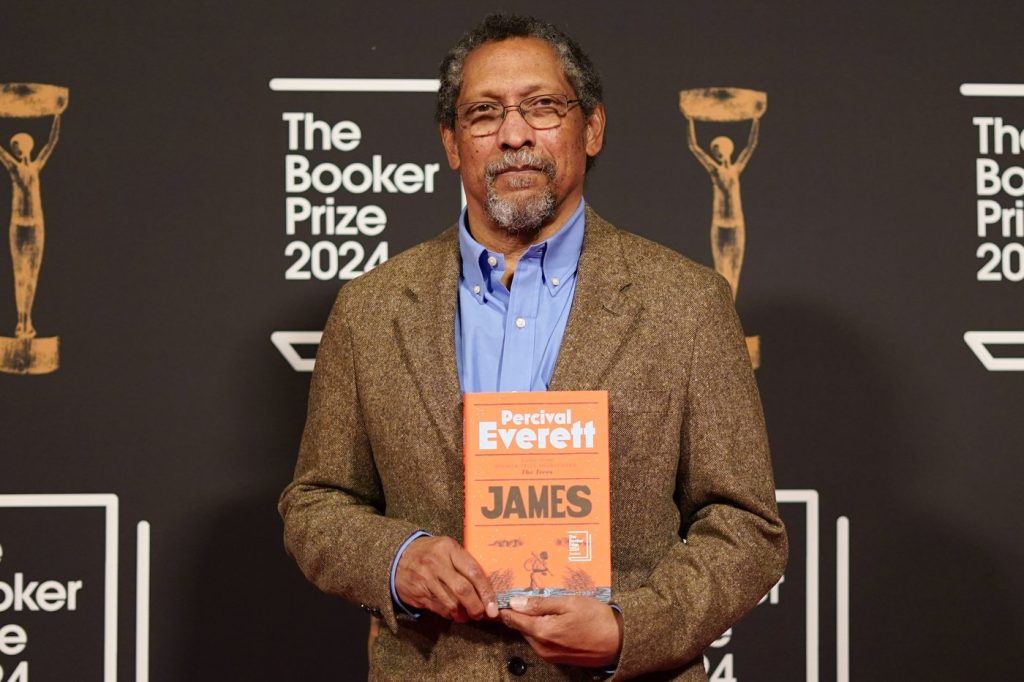NEW YORK (AP) – For author Percival Everett, libraries have always represented a realm of knowledge, discovery, and even the allure of the forbidden. Everett recalled during a recent telephone interview how, at the age of 13, he formed a friendship with a librarian at the University of South Carolina. This librarian allowed him the freedom to explore the library's stacks beyond the restrictions typically placed on visitors, fostering a love for books and exploration.
Everett emphasized the unique aspect of libraries: while searching for a specific book, patrons inadvertently encounter a surrounding array of other books that might differ in relevance or connections. He contrasted this experience with online searches, noting that the links provided online are predetermined, while libraries offer an organic and unstructured discovery process through their collections.
Recently, Everett achieved another recognition for his literary contributions as the American Library Association announced that his novel, “James,” was awarded the prestigious Carnegie Medal for Excellence in Fiction during a ceremony held on Sunday. This accolade comes with a $5,000 cash award. In the nonfiction category, Kevin Fedarko’s work, “A Walk in the Park: The True Story of a Spectacular Misadventure in the Grand Canyon,” was also honored.
Everett's acclaimed novel is a contemporary reimagining of Mark Twain’s “The Adventures of Huckleberry Finn,” told from the perspective of Jim, Huck Finn’s enslaved companion. His novel has already garnered significant accolades, including the National Book Award and the Kirkus Prize, and is a finalist for the National Book Critics Circle award. “James” has distinguished itself by reaching the top of The New York Times fiction hardcover list, a rarity for literary works that are not tied to major book club selections or film adaptations.
Allison Escoto, chair of the Carnegie Medal selection committee, praised Everett's work as a "modern masterpiece." She noted that it offers fresh insights into the experiences of a classic character, highlighting its importance in contemporary literature. Fedarko's book also received accolades for capturing "unforgettable journeys through the otherworldly depths of the Grand Canyon," reflecting both the challenges and enlightening experiences derived from exploration in nature.
Kevin Fedarko, who previously worked as a correspondent for Time magazine, shared a personal connection to libraries, particularly Carnegie libraries, from his childhood in Pittsburgh. He fondly remembered visiting a library in Oakmont, near his parents’ hair salon, where he spent hours absorbing biographies of historic figures such as George Washington and Daniel Boone. He has regarded libraries as crucial points in his life, describing them as "important threads" that provided windows to a wider world.
Currently residing in Flagstaff, Arizona, Fedarko cited the library at Northern Arizona University as an essential resource for both “A Walk in the Park” and its predecessor, “The Emerald Mile.” He acknowledged that the library’s unique collection regarding the Grand Canyon was vital for the historical framing of both books, stating, “Neither of them could have been done without the library.”
The Carnegie Medals for Excellence, established in 2012 with a grant from the Carnegie Corporation of New York, have previously honored notable works such as Donna Tartt’s “The Goldfinch,” Colson Whitehead’s “The Underground Railroad,” and Doris Kearns Goodwin’s “The Bully Pulpit.” This year's finalists in the fiction category included Jiaming Tang’s “Cinema Love” and Kavin Akbar’s “Martyr!” In nonfiction, the runners-up consisted of Adam Higginbotham’s “Challenger: A True Story of Heroism and Disaster on the Edge of Space” and Emily Nussbaum’s “Cue the Sun! The Invention of Reality TV.” Both fiction nominees were published by Penguin Random House, while all nonfiction contenders were released by Simon & Schuster.
In conclusion, the recognition of both Percival Everett and Kevin Fedarko underlines the vital role libraries play in nurturing literary talent and offering a foundation for authors to explore diverse narratives and historical contexts through the treasures held within their walls.











